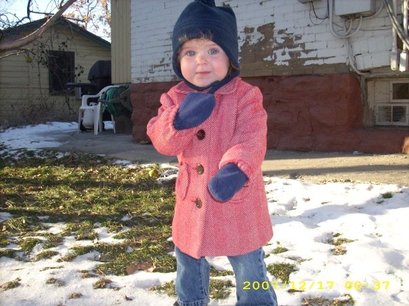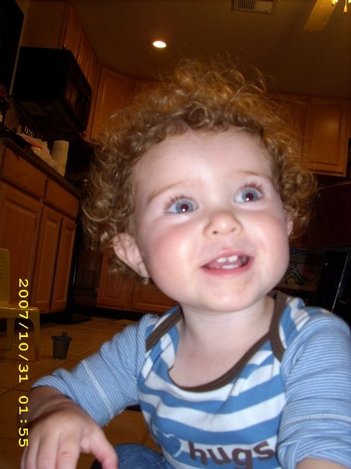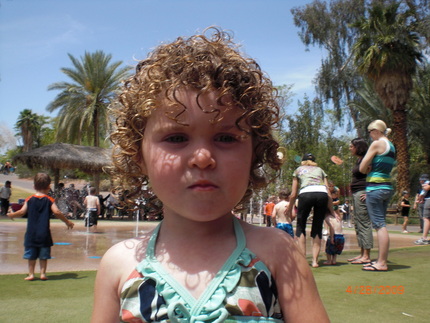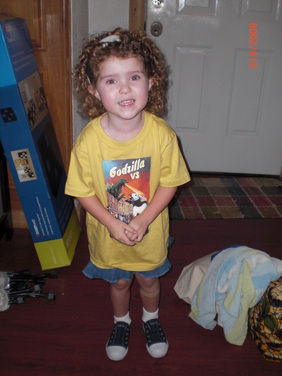
Even in the kitchen I could hear the music from the closing credits of the film. It was a pretty Celtic tune sung, I think, by Sinead O’Connor. I poked my head around the corner and looked into the study because I hadn’t heard Reese do her normal thing when the credits started at the end of a movie. At the time, as soon as they started rolling, Reese would shout, “Movie done! Movie all done! Daddy turn off!” But not this time.
When I checked in on her, Reese didn’t see me. She didn’t know I was there. And Reese was dancing. Happily. Intensely. Gracefully. She was spinning and jumping and moving her hands around in big, dramatic circles.
Since she didn’t know I was watching, obviously she wasn’t performing, at least not for me. I watched her for awhile and ducked away before she noticed me eying her.
When Reese came out of the room a few minutes later to look for me, I made a point of not mentioning the dancing. I don’t think I wanted her to become self-conscious about what she’d done.
Watching her dance just for the joy of doing so was one of the happier moments I’d had in a while, and it’s hard even now to put into words why that was so. I don’t think I’ll try. I’ll just receive it as the gift it was.
But I will mention two thoughts I’ve had about it since. The first has to do with a definition of character I’ve heard frequently over the years. People will say from time to time that character is ultimately who we are and what we do when we know no one is watching us.
Speaking honestly, at the time of her impromptu dance, my daughter had been getting on my nerves quite a bit. A lot of the edginess was supplied from my side, as it always is. I am, after all, the adult in the relationship (quite literally). But for her part, Reese was certainly bringing plenty of “terrible twos” to the party.
In light of this, it was wonderful to catch a glimpse into her character, into the Reese that happens when no one is watching. She was not simply a tantrum-throwing ball of wants and complaints. She was also someone who dances beautifully when alone.
Do I have the joy in me to sometimes dance just to dance? If I don’t, please, Lord, give it to me. It was good to see Reese had it then. I pray she still has it now. I want that to be a part of my character, and of hers as well.
The other thing that struck me about Reese’s dance was simply the intense physicality of it. She was really going at it. She wasn’t in hyper-active-spasmodic-mode, but she was doing more than a slow waltz. That characterizes a lot of Reese’s activity, and a lot of most kids’ activity, I guess.
Kids don’t “work out” much, but they exercise a great deal. They play. Their play calls them to both enjoy and exert their bodies. As an adult who “works out,” I probably exert my body a little more than average. But, I exert it to keep it from falling apart.
How often do I actually use my body to play? Where is the play? It often does not feel like there is much of it, quite frankly. Lately, I have been aching for more play. Lord, if I am losing my ability to play, please set me straight. And help Reese never lose her passion for play.
When Jesus famously told us to become like little children in order to enter the land of God’s rule, there were surely all sorts of reasons for Jesus’ choice of language.
Maybe part of why he used those words was because the Lord was calling us to be free enough in God’s love to be able to play like children, at least now and again. Maybe Jesus wanted to wake us up from the collective adult hallucination that we are the ultimate masters of our universes and so must be serious all the time.
Maybe there was also a call to dance when no one’s watching and not be ashamed. A call to dance simply to enjoy producing nothing, impressing no one, and gleefully wasting time as an offering of life to God. A call to dance ourselves a little of the way back to Eden.
I pray you can dance and play and let loose before God.




 RSS Feed
RSS Feed